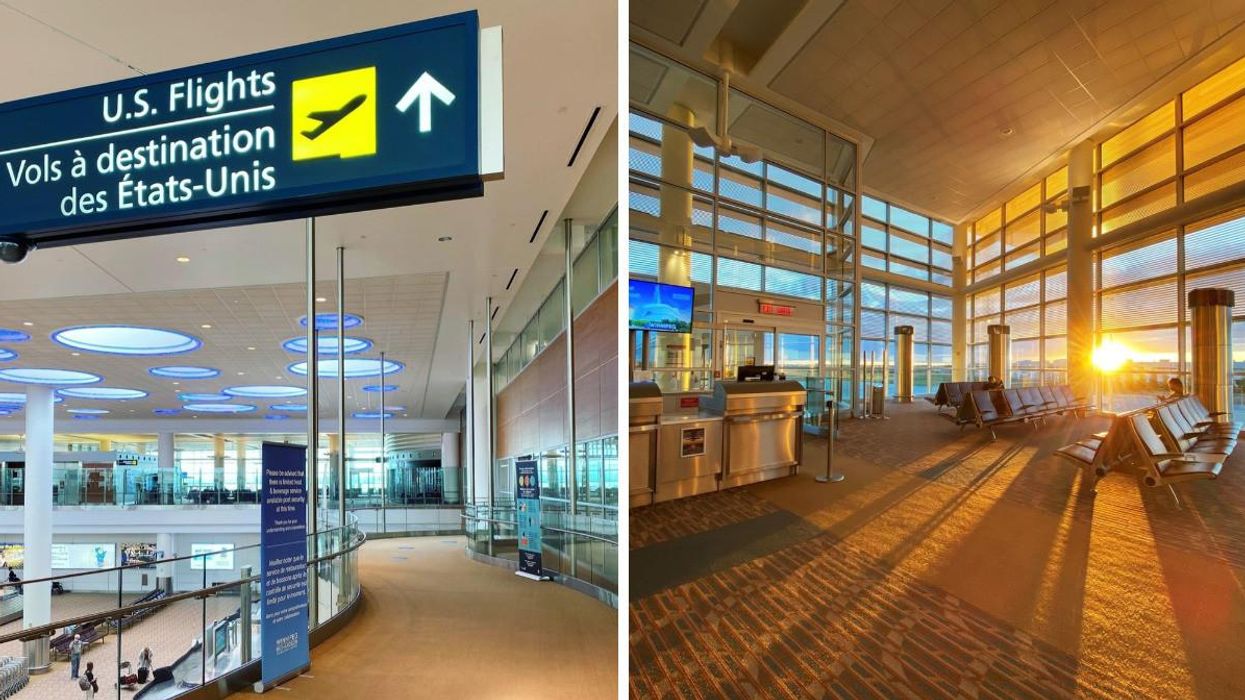6 Things The Feds Want You To Know About Canada's New Travel Rules Before You Go Abroad
Get ready, Canada! ✈️
Canada's travel restrictions are set to change this month and going abroad is expected to become a little simpler and a little cheaper for fully vaccinated Canadians.
However, there are a few things the federal government wants you to consider before you book an international flight and pack your bags.
From considering the risks and checking your insurance to understanding pre-entry testing requirements at the Canadian border, here are a few things to keep in mind before you plan the post-pandemic vacation you've been dreaming of.
Understand testing requirements
Canada's COVID-19 testing requirements for travel have changed multiple times over the last year or so, so it's essential that you know the deal before you go overseas.
As of February 28, on-arrival testing will be eased for fully vaccinated travellers.
Fully vaxxed travellers entering will soon have the choice between taking a rapid antigen test or a PCR test to meet pre-entry requirements. Individuals may still be randomly selected for PCR testing upon entry, but those who are selected will no longer be required to quarantine while they await results.
It means Canadians returning home will now be able to take a cheaper antigen test, although the feds say an at-home test is not sufficient to meet the requirements.
"It must be authorized by the country in which it was purchased and must be administered by a laboratory, healthcare entity or telehealth service," a government notice reads.
The rules for unvaccinated travellers and unvaccinated foreign nationals are not set to change.
See a health professional
If you must travel, \n\nBe sure to check the \u201cHealth\u201d section on the Travel Advice and Advisories website for your destination before you leave. \n\nhttps://ow.ly/R3MW50I2x9S\u00a0 #Covid19pic.twitter.com/ZAa9hcSXPP— Travel.gc.ca (@Travel.gc.ca) 1645638003
From February 28, the federal government also intends to change its global travel advisory from a level 3 to a level 2.
It means that travellers will be urged to "exercise a high degree of caution" abroad, rather than to "avoid all non-essential travel."
However, those who do decide to travel are still advised to consult a health care professional before going overseas.
The feds suggest visiting a doctor or travel health clinic "at least 6 weeks before you travel."
Use ArriveCAN
Travelling to Canada and unsure or unable to use #ArriveCAN?\n\nYou can ask someone to submit the mandatory info on your behalf by signing in online. Ask them to share the receipt with you by printing out a copy or by sending you a screenshot.\n\nLearn more: https://ow.ly/nmtT50HXzek\u00a0pic.twitter.com/xdsFzYee6k— Health Canada and PHAC (@Health Canada and PHAC) 1645538494
Although some of Canada's travel restrictions are changing, the requirement to use ArriveCAN is not.
"All travellers, regardless of how long they were away from Canada, continue to be required to submit their mandatory information via ArriveCAN (free mobile app or website)," the government says.
This includes uploading proof of COVID-19 vaccination in English or French and submitting a possible quarantine plan.
Check your insurance
If you must travel, take some #TravelHealthInsurance. Learn more about why it\u2019s important: \n\nhttps://ow.ly/zZnH50I1qPE\u00a0pic.twitter.com/6Z5Esakwo1— Travel.gc.ca (@Travel.gc.ca) 1645553403
Those who book an international vacation should ensure they have adequate travel insurance in case they face unexpected complications related to COVID-19.
"Check with your travel insurance provider and make sure you're covered for COVID-19-related medical expenses, other non-COVID-19 emergency-related expenses and trip interruption," advises the government.
Officials also recommend making backup plans in case you end up delayed on your way home, "including the financial implications and the practical arrangements (e.g. flight re-booking, extended accommodations at the destination etc.)."
Consider the risks
Before booking a trip, the feds say travellers should "consider the availability of medical services in a foreign country, and plan for the potential high costs associated with medical treatment and extending their trip, should they test positive for COVID-19 while abroad."
They also suggest avoiding "high-risk activities" while overseas, such as attending crowded events and spaces.
Examples listed by the government include large live performances, busy bars or sports events and crowded transportation systems.
Restrictions are subject to change
In a notice on February 15, the federal government urged Canadians to keep in mind that travel restrictions are subject to change, both in Canada and overseas.
They warned that measures "may change while [you] are abroad" and therefore travellers should "regularly review the entry requirements and exemptions for their travel situation."
Before you get going, check out our Responsible Travel Guide so you can be informed, be safe, be smart, and most of all, be respectful on your adventure.
This article's cover image was used for illustrative purposes only.
- Canada's Global Travel Advisory Is Changing Soon & Here's What It ... ›
- Canada's Travel Restrictions Are Changing & It Means COVID-19 ... ›
- Canada's Travel Rules Are Changing In February & Here's ... ›
- 7 Countries Around The World Where The Canadian Dollar Goes A Long Way - Narcity ›
- Canada's Testing Requirements Should Be Scrapped At The Canada-US Border, Officials Say - Narcity ›
- Canadian Mayors Are Calling On Trudeau To End Travel Testing Requirements This Month - Narcity ›
